Are you in need of your vaccination records but don't know where to start? Requesting these important documents can be a simple process if you know the right steps. In this article, we'll guide you on how to craft the perfect letter template for efficiently obtaining your vaccination records. So, let's dive into the details and help you get the information you need!
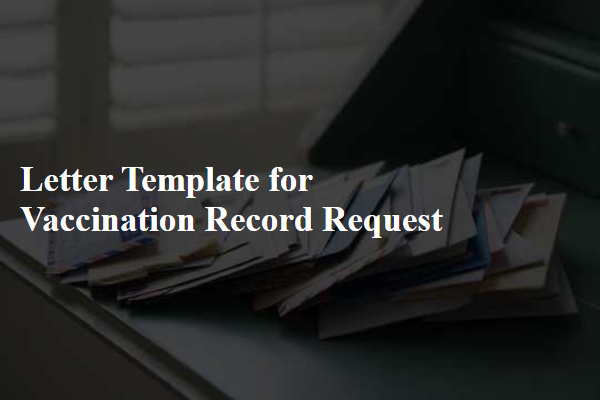
Recipient Information (Name, Address, Contact)
A vaccination record request typically involves essential details to ensure proper communication. The recipient information should include the full name of the individual for whom the vaccination record is requested, their residential address that consists of house number, street name, city, state, and zip code, along with a contact number to facilitate any necessary follow-up. This information is crucial for healthcare providers to promptly locate and provide accurate vaccination details, which may include the date(s) of inoculation, type of vaccine received, and the administering facility's name. Accurate recipient data ensures efficient processing of the request.
Patient Details (Full Name, Date of Birth, Contact)
Vaccination records are essential documents for verifying immunization status, particularly for individuals attending schools or traveling internationally. Requesting these records typically involves providing patient details such as the full name of the individual, date of birth for identification purposes, and contact information including a phone number and email address to ensure clear communication with health authorities or vaccination clinics. Accurate details significantly enhance the likelihood of a prompt response and retrieval of complete vaccination histories, which may include dates of administered vaccines like Measles, Mumps, and Rubella (MMR) or Tetanus-Diphtheria-Pertussis (Tdap).
Specific Vaccination Details Requested (Vaccine Type, Dates)
Vaccination records serve as crucial documentation for individuals seeking to verify their immunization status against specific diseases. Health officials often require details including vaccine type, such as the mRNA Pfizer-BioNTech or Moderna COVID-19 vaccines, which were pivotal during the global pandemic that began in late 2019. Additionally, the dates of administration, typically noted on official records, provide evidence of compliance with recommended vaccination schedules. For example, the CDC recommends a two-dose regimen for these vaccines, with the second dose administered three weeks after the first for Pfizer and four weeks for Moderna. These records may be necessary for travel, educational institutions, or employment in health-sensitive environments, ensuring protection against outbreaks and enhancing public health safety.
Delivery Preferences (Email, Mail, Pickup)
Vaccination record request is important for verifying immunization status. Delivery preferences should be clearly stated to ensure timely receipt. Email is often the fastest method, allowing immediate access to digital documents, while mail provides a physical copy that can be stored securely. Pickup options offer the chance to collect records in person at healthcare facilities such as clinics or hospitals, allowing for questions to be addressed directly. It is essential to specify the preferred method when making the record request to avoid delays and ensure proper documentation for school admissions, travel requirements, or employment verification.
Contact and Follow-Up Information
The process of obtaining a vaccination record can vary by healthcare provider and location. Records are typically stored in Electronic Health Records (EHR) systems to ensure accessibility and security. When requesting vaccination records, key details may include patient identifiers, such as full name, date of birth, and social security number. It's essential to specify the type of vaccinations needed, along with the dates administered, if available. Additionally, a clear note on the preferred method of record delivery, such as email or postal service, should be included. In many jurisdictions, contacting the local health department can also facilitate access to immunization records, particularly for school enrollment or travel requirements. Follow-up communication may be necessary if there are delays or issues in receiving the requested documentation.
Letter Template For Vaccination Record Request Samples
Letter template of vaccination record request for employment verification.
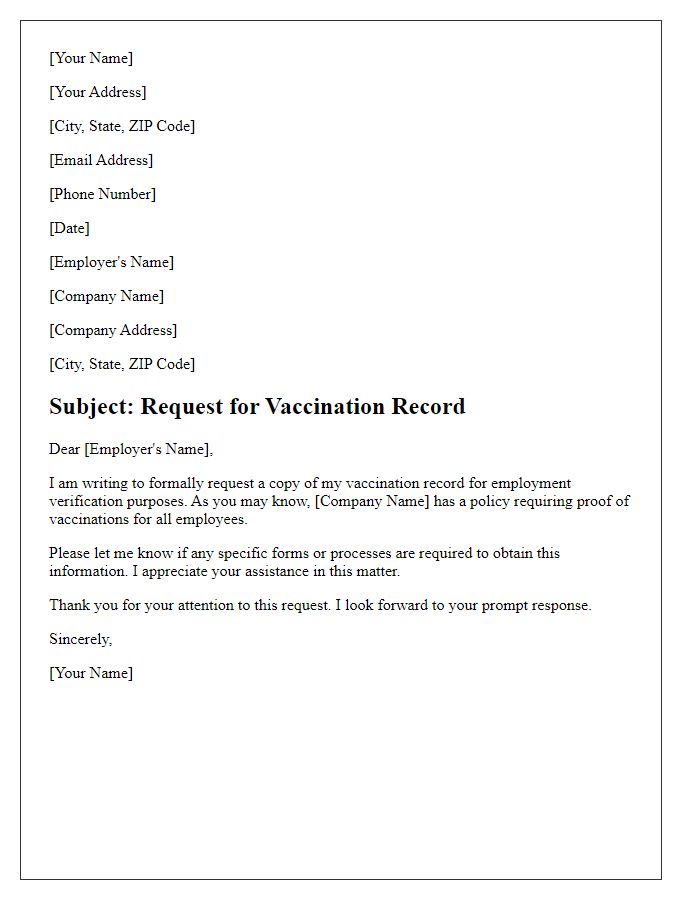

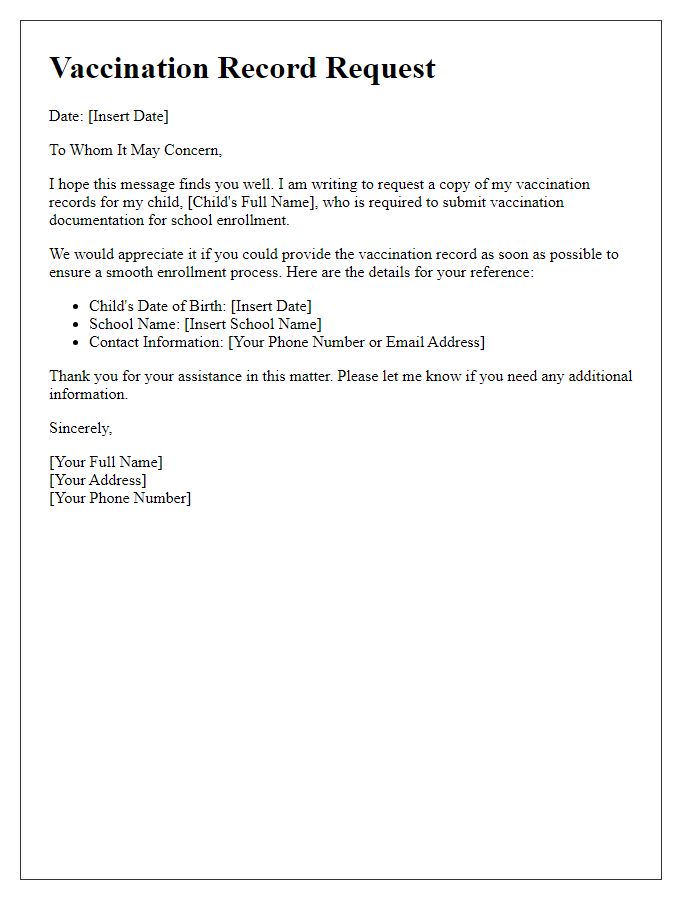
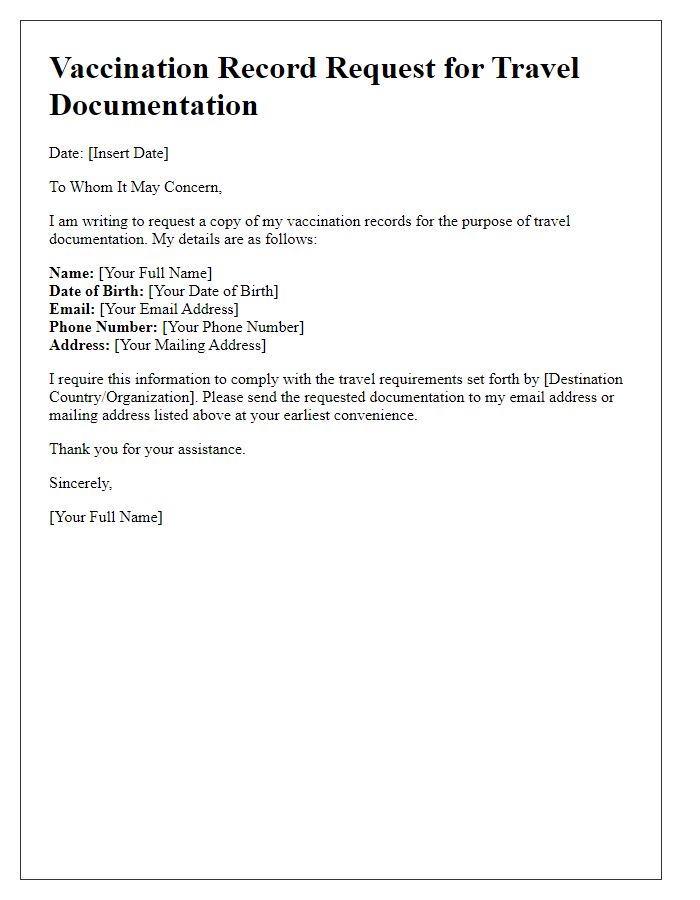
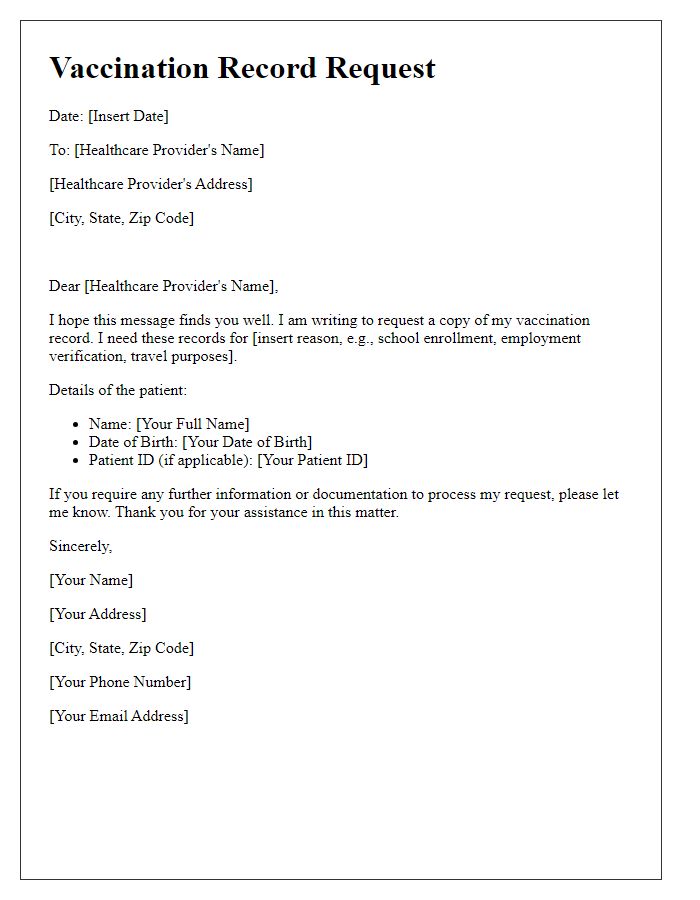
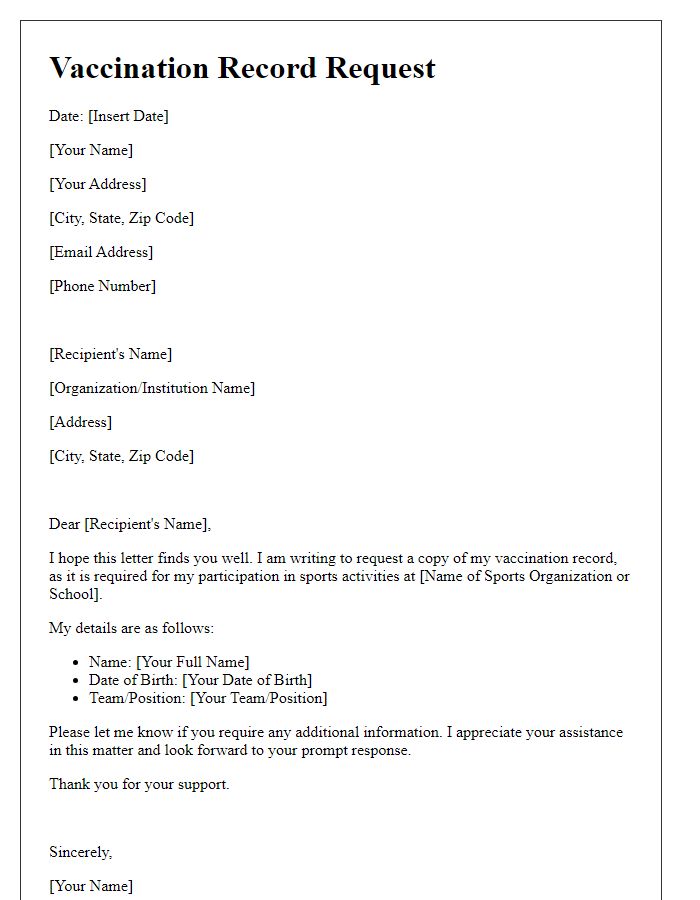
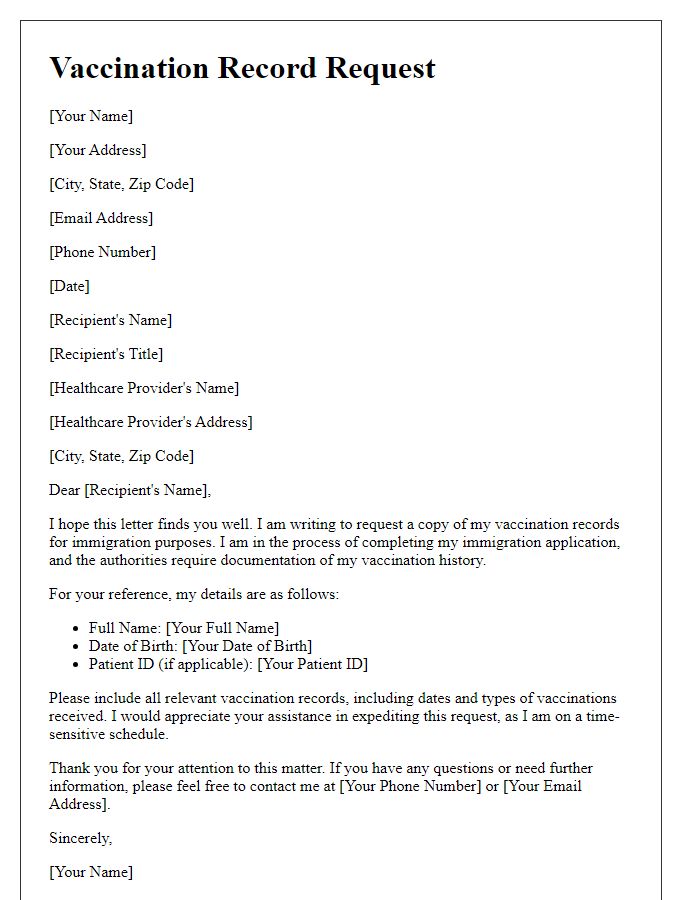
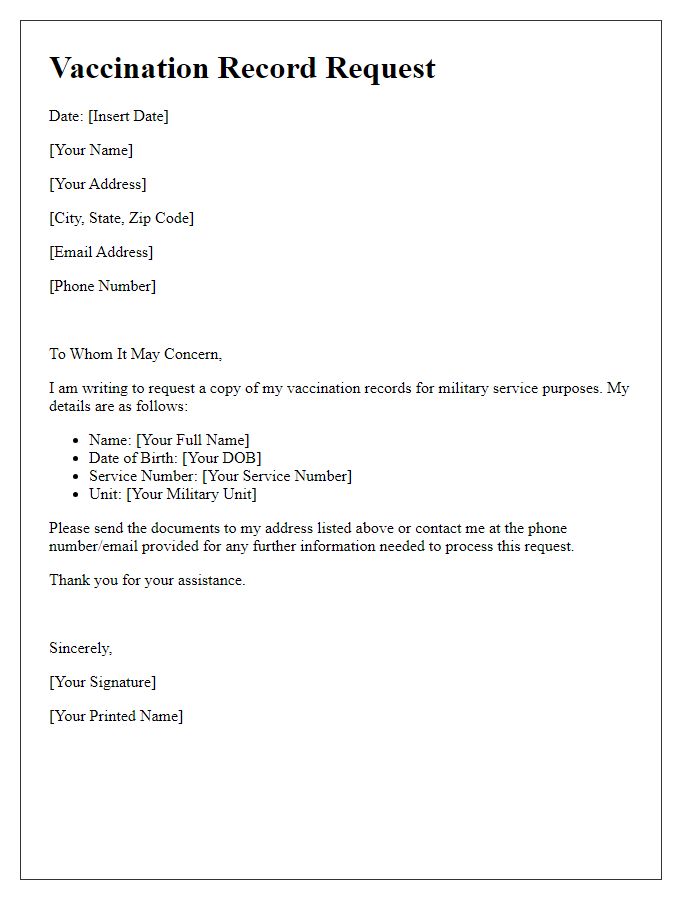
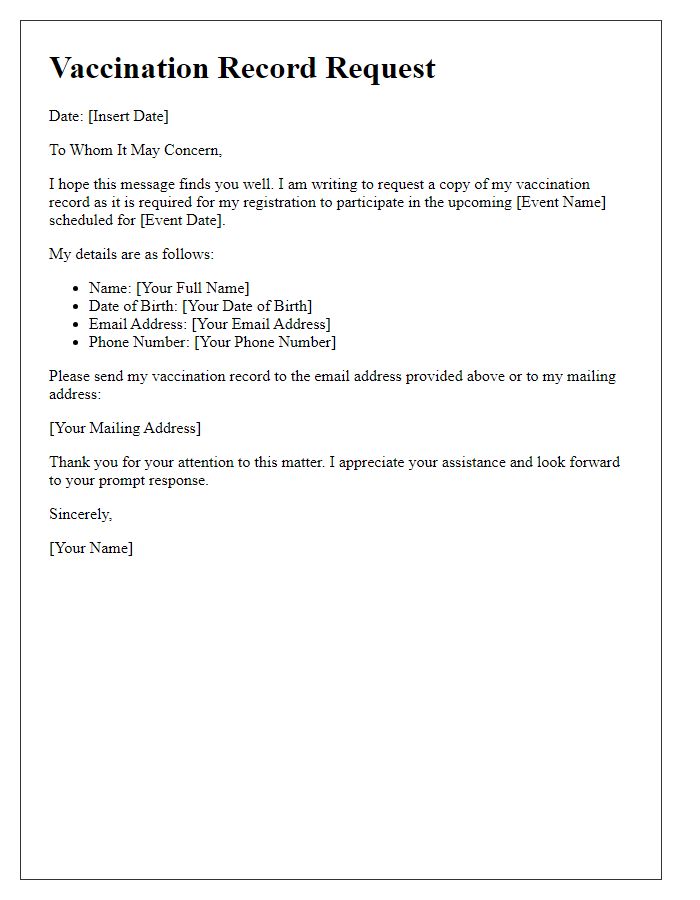
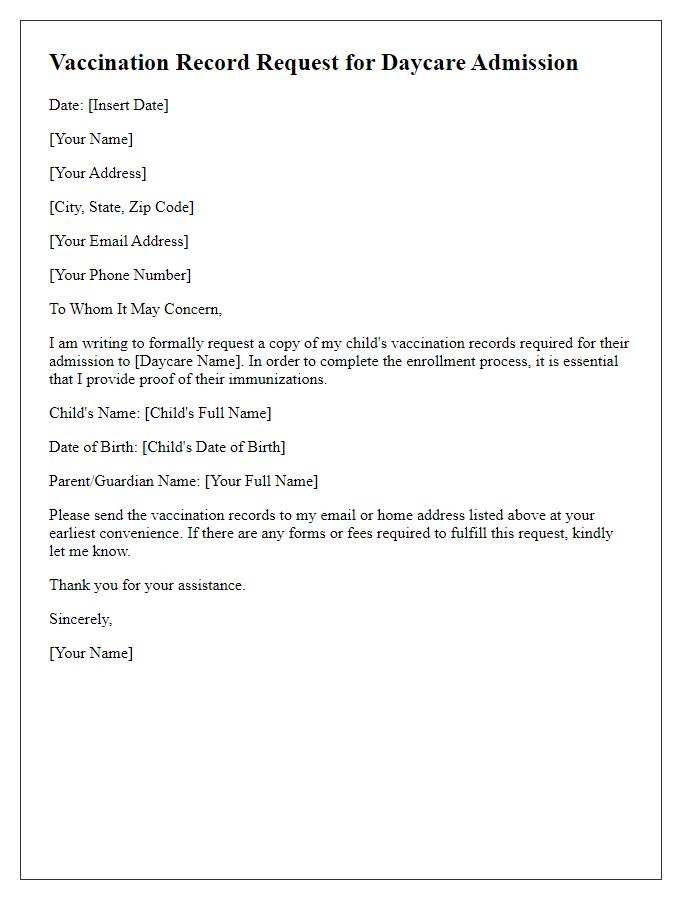
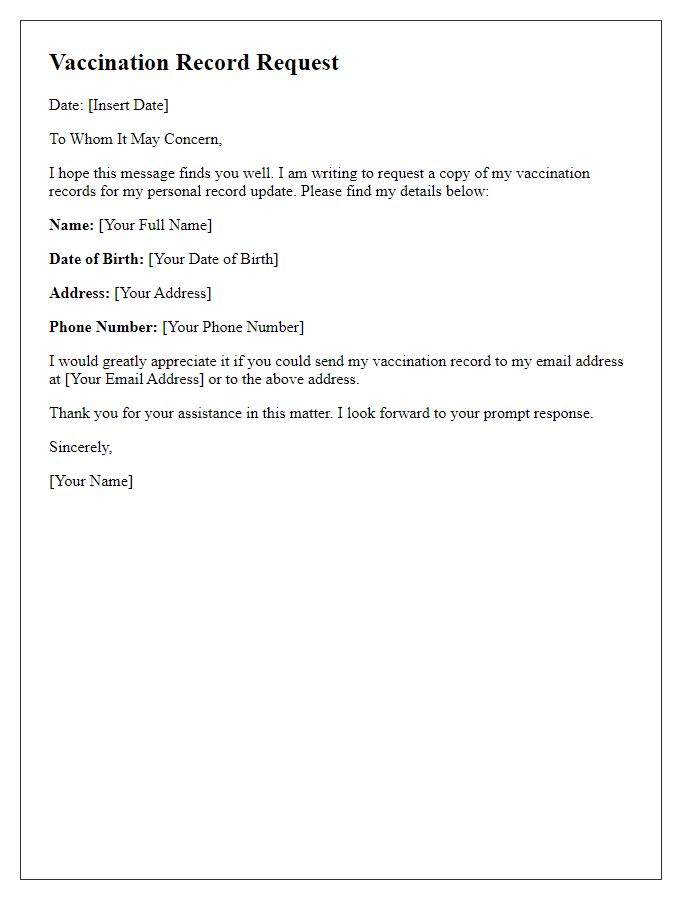

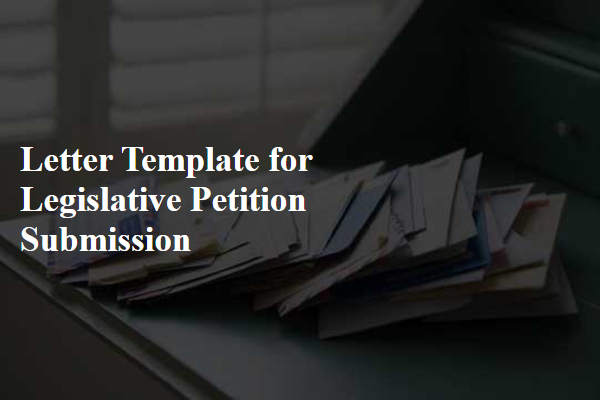
Comments